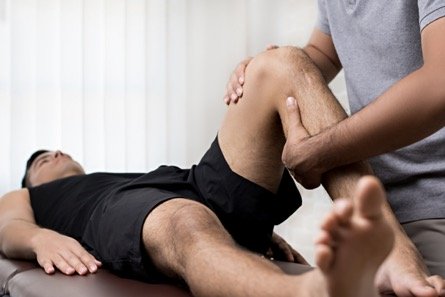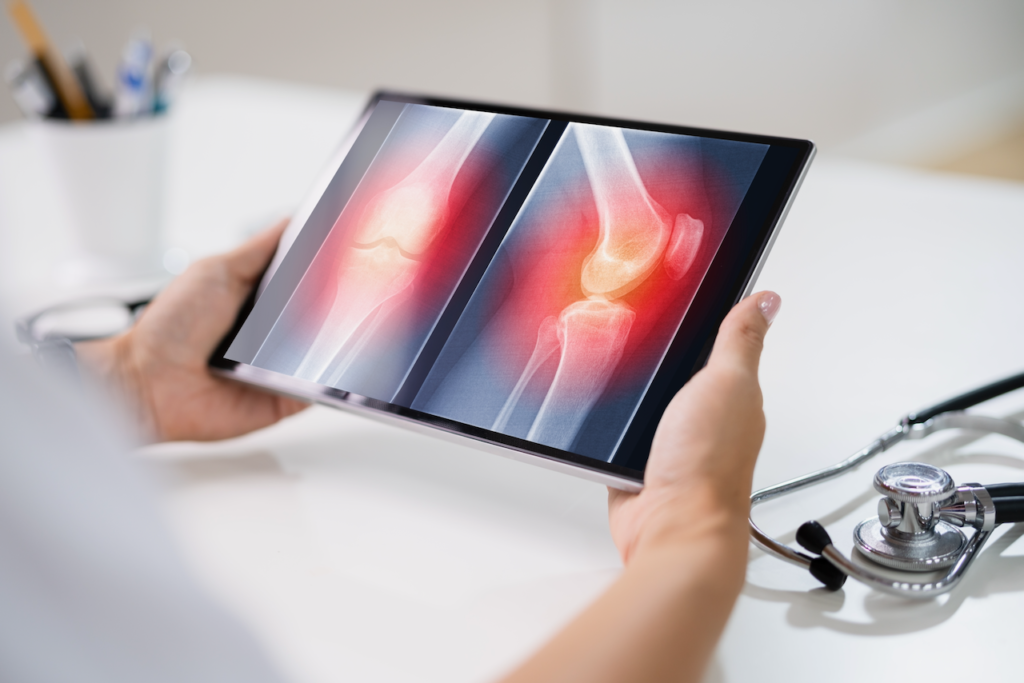Diagnosis, Advice and Second Opinions

“Hi, For anyone contenplating having knee surgery Dr Charles Wilis -Owen is probably the finest surgeon in the country ! I had my second full knee replacement in Dec. 22 - now no pain ! walking 3-4 miles and cycling 20 miles at any one time- not everyday but 3 or 4 times a week. Can't recommend Charles enough- - Great surgeon. - Great communicator- - Everthing explained sympathetlcly. - No nonsense- positivity all the way. Best Martin Clark- Broadstone.
It sounds silly because telling someone exactly what is wrong is not a treatment. Often, though, once we have worked out what is wrong I can give you enough advice and guidance to help you solve the problem yourself!
What happens during a consultation?
There will be a bit of talking and a bit of me examining the injured part of the body (consider this when choosing what to wear), and then a bit more talking.
Sometimes it is obvious from hearing your story, and even more obvious once I have examined you. In the same way a farmer knows all of his cows by name, there are some patterns that are so familiar that I know what we are dealing with right away. At other times there may be a few possibilities, and if I am not sure I may recommend some sort of a scan.
Book a consultationWill I need a scan or tests?
Sometimes we do, sometimes we don’t. It depends entirely on what’s wrong with you. Some people want to try and get the scan before the first appointment but unfortunately, this can backfire and be a waste of time and money as we may end up doing the wrong scan or the right scan in the wrong way! Sometimes ordinary x-rays will be all that we need and they can often be done on the day, other times it may need an MRI scan or an ultrasound scan.
Some people are worried about claustrophobia and an MRI scan, but most of the time – with the kind of leg problems that I treat – you only have to go in as far as your waist so it’s really not too bad.
What happens next?
Usually then I would recommend that we meet again after the scan and go through the results together. I’ll often re-examine you with the information from the scan to make sure what we are seeing is indeed the cause of your pain. Modern imaging technology is so accurate we can often pick up a lot of incidental findings which are minor abnormalities that have nothing to do with your problem and we have to be careful that we only treat the things that are causing problems.

How is this going to help?
Once we know what the problem is then we can work out how to fix it. Often, in fact most commonly, this is just some accurate, but surprisingly simple advice.
Sometimes it can be correcting training errors, or stopping you using the wrong shoes or the wrong kit. It can be helping find you the right physio or orthotist or bike fitter and guiding them on how to help you. It may be to advise you to make some minor changes to the way you do your activities and how you recover. Very commonly people are doing too much poor quality training and can improve faster and with less injury by doing a small amount of higher quality work (I’ve certainly made this mistake myself). I may well end up advising you on buying some simple over the counter things that will help you fix yourself, such as tape, braces, or TheraBand. Sometimes it is directing you to a specialist who does an operation that I don’t do (there is nothing more dangerous than a surgeon who tries to do a little bit of everything). Sometimes it’s just nice to know what is going on, that it is not too serious, and that it is fine to leave it alone!
What if that doesn’t work?
I always have a plan B and a plan C, and I’ll give you clear instructions as to what to do if the first line measures don’t work. This is where all of the other treatment options kick in. Have a look at some of my other pages to get an idea of what other things we sometimes need to do.
“Hi, For anyone contenplating having knee surgery Dr Charles Wilis -Owen is probably the finest surgeon in the country ! I had my second full knee replacement in Dec. 22 - now no pain ! walking 3-4 miles and cycling 20 miles at any one time- not everyday but 3 or 4 times a week. Can't recommend Charles enough- - Great surgeon. - Great communicator- - Everthing explained sympathetlcly. - No nonsense- positivity all the way. Best Martin Clark- Broadstone.
Second Opinions
I see lots and lots of people for second opinions. Hopefully this is when the first doctor isn’t sure so they ask me to take a look and check.
Sometimes it is when a person isn’t sure about their doctor, they come to me to check. This is a good idea if your doctor does not seems confident in their plan, or if you don’t get on with them, or trust them. Not all doctors are equal, some are not fully abreast with the latest options, and some seem to be just in it for the money!
The most challenging times (but also the most common) are when someone has had an operation done elsewhere and it has not gone to plan. I see this a lot!
Knee surgery is tricky and people don’t always get it right. I see lots and lots of knee replacements that are not quite right, and I can usually help. I also see lots and lots of ACL operations and keyhole surgery where the results are not good and again I can help. The really sad thing is that quite often other surgeons blame the bad results on the patient rather than looking to themselves. The truth is, it is almost never your fault!
Frequently asked questions
No - not if you are self-funding, and never for my sake. GP's are quite busy enough as it is! Sometimes your insurers insist that you do have a referral (the cynics would say it makes it harder for you to make claim). Some patients use online GP services like PushDoctor for this and I am fine with that.
Not if they are a good doctor who is honest and open. If it does upset them then it is a sign that you made a good decision. If you like we can keep it confidential too.
I usually don't recommend this and certainly not without discussing it with me first (just email me). Until I've seen you I won't know what we need and you may end up spending time and money on the wrong test, only to have to get something different. Also, most tests carry some risk to your health so we should only do them if we know that you need them, and they are safe for you.